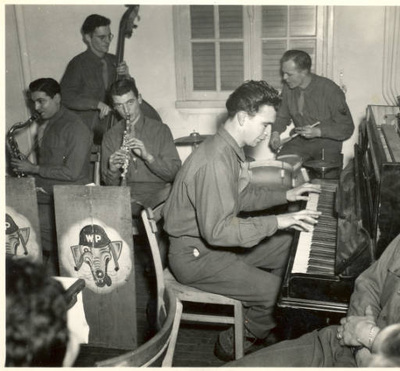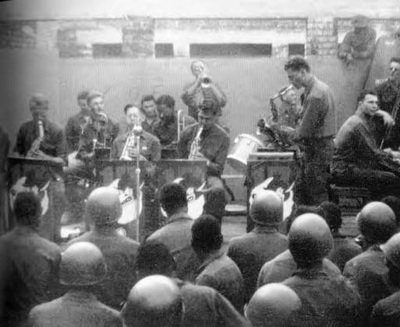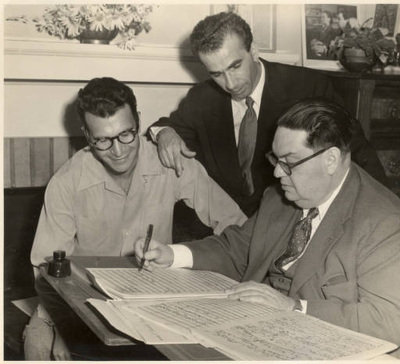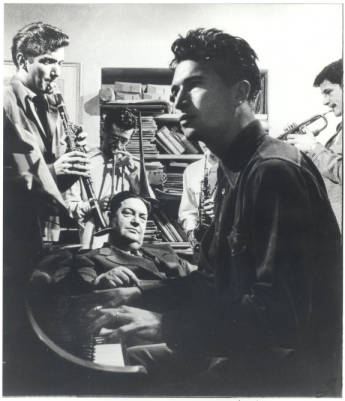Brubeck's music inspiration
"On the parachute landing on D-Day, one of my friends got shot in the air in his harness of his parachute. And you just hear about all your friends that didn't make it. It gives you a sense of, 'Why am I here? Why did they get killed?' And then also you say to yourself, 'I'm alive and I'm gonna do as much as I can.'"
-Dave Brubeck
Dave Brubeck's experiences in World War II led him to compose many songs about the tragedy of war, such as The Light in the Wilderness. There, he led the first integrated Army band, "The Wolfpack."
Camp Haan Experiences
"I never want that boy to go to the front." |
|
|
After Brubeck's graduation in 1942, he enlisted in the Army, playing with the Army band at Camp Haan in 1942-1943. After his new commanding officer heard him play, he told his aide-de-camp, "I never want that boy to go to the front." Instead of fighting, Brubeck led a band, "The Wolfpack," one of the first racially integrated groups in the Army, in combat areas to play for the troops.
-Summarized from Ben Ratliff |
"Brubeck joined the military upon graduation in 1942, and, after an audition, was assigned to an Army band. He spent some time stateside at Camp Haan in Riverside, California, where he went through riflery training, played the piano and watched World War II unfold from afar. He was such a hit that the next day he was pulled out of his unit and ordered to organize an army jazz band. Brubeck became bandleader of a group called 'The Wolfpack,' one of the first racially integrated units in the U.S. Army. Although he was offered promotions to higher ranks, Brubeck remained a private first class when he found out that accepting an officer's rank would mean moving out the barracks and away from his band members."
-Rediscovering Dave Brubeck
After the War
Brubeck and his wife moved to Oakland, California, in 1945. Brubeck studied at Mills College with classical composer Darius Milhaud. Milhaud instructed his students to write fugues for jazz ensembles, which Brubeck later performed.
"When Dad returned from World War II, where he started the first racially integrated jazz band in the armed services of the U.S, jazz was the music that conjured up the feeling of freedom, (musicians were free to improvise their own solos and express their personalities through their playing) and the feeling of new era for freedom and expression of new ideas. Europe heard jazz as the music of liberation." |
"There's not a day goes by when I don't think about what I saw then (World War II). When I got back home I began to play a much more aggressive, dissonant form of jazz." |



